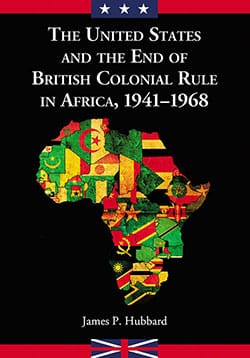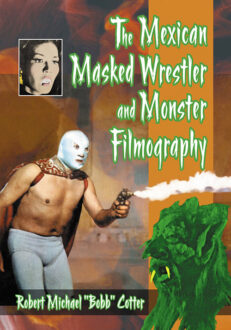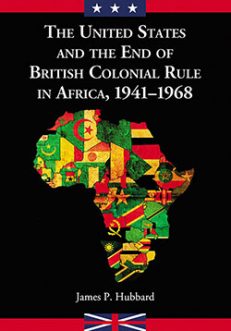The United States and the End of British Colonial Rule in Africa, 1941–1968
Original price was: $59.95.$27.99Current price is: $27.99.
In stock
About the Book
At the end of World War II, Britain possessed a vast African empire encompassing nearly 2.7 million square miles, about 10 times larger than Britain itself. But by 1965, only three small African territories remained under British control, all of which would become independent before the end of 1968. This book examines the swift demise of Britain’s African empire, looking particularly at the role played by the United States in bringing the empire to an end. It reveals how the United States was anti-colonial without being actively pro-independence, concluding that the country’s policies and actions, combined with its postwar dominance, directly and indirectly contributed to the political, economic, and social transformation of Africa.
About the Author(s)
Bibliographic Details
James P. Hubbard
Format: softcover (7 x 10)
Pages: 421
Bibliographic Info: notes, bibliography, index
Copyright Date: 2011
pISBN: 978-0-7864-5952-0
eISBN: 978-0-7864-5745-8
Imprint: McFarland
Table of Contents
Preface 1
1. The United States and Colonies, 1941–1945: Roosevelt Seizes the High Moral Ground 5
2. Churchill, Britain, and Empire, 1941–1945: Hands Off the British Empire 29
3. The Truman Administration, 1945–1952: Global Power and Colonies 45
4. Great Britain, the United States and Colonial Issues in the United Nations, 1946–1952: In the Middle of the Road 65
5. Colonial Reform in London, 1946–1952: Fresh Ideas 80
6. Colonial Reform in West Africa, 1946–1952: A Good Beginning 94
7. Colonial Reform in East and Central Africa, 1946–1952: Rural Revolt and Federation 115
8. Egypt, Britain, the United States, and the Sudan, 1946–1954: A Bargaining Chip 130
9. The Eisenhower Administration and British Africa, 1953–1960: At Arm’s Length 146
10. Colonialism in the United Nations During the Eisenhower Years, 1953–1960: Still in the Middle 169
11. Colonial Policy Under the Conservatives, 1952–1959: Foot Dragging 180
12. Anglo-American Sponsored Development: A Road Not Taken 191
13. West Africa and the Sudan, 1953–1960: Final Steps 202
14. East Africa, 1953–1959: Political Transformations 218
15. Central Africa, 1953–1959: Hopes Unfulfilled 246
16. British Colonial Policy, 1959–1960: Macleod Accelerates the Pace 255
17. Federation of Rhodesia and Nyasaland, 1959–1960: Rough Waters 272
18. Kennedy, Macmillan, and Africa, 1961–1963: A New Style 286
19. West and East Africa, 1961–1963: Carrying on Regardless 302
20. Central Africa, 1961–1963: End of Federation 321
21. Johnson and British Colonial Africa, 1963–1968: No Rescue 350
Conclusions 364
Chapter Notes 373
Bibliography 397
Index 407
Book Reviews & Awards
“Hubbard’s detailed narrative provides a rich account of the ins and outs of British and American policymaking in the face of African nationalist agitation. The book serves as an excellent reference”—H-Diplo Roundtable Review; “engagingly written”—Oxford Journals Clippings Diplomatic History.





